Digital Lottery Design
A changing lottery landscape
Digital is having a transformative impact across industries. New technologies create new ways to engage customers, spurring ever changing, ever increasing, customer expectations.
The benchmark for customer experience excellence is now often set outside your own industry, imported from the products and services that meet customer’s needs elsewhere.
These changing expectations are having a particular impact on the way lotteries are run worldwide.
Compound this with the rise of a digital-native millennial generation, and the imperative for lotteries to have a sound digital transformation strategy is clear.
A quick look at demographics
Researchers have noted that younger people play the lottery at a higher rate.
People in their 20s and 30s tend to play the lottery more often with approximately 70% of 20 to 30 year-olds playing the lottery at least several times a year.
The percentage of lottery players dips for people in their 40s, 50s and 60s to approximately 50%, and then declines 5% for people aged over 70.

Lottery digital design principles
If this is the changing landscape in which lotteries operate, what should they do to capitalise on the opportunities presented by changing technologies, customers and behaviours?
How do we create a lottery experience that is modern, relevant and personal for all its players?
At ELSE we’ve worked with several of the world’s leading lottery providers on their digital strategy, so we’ve had experience at the cutting edge of this transformation. We want to share the principles that inform our thinking on lottery design in the digital age.
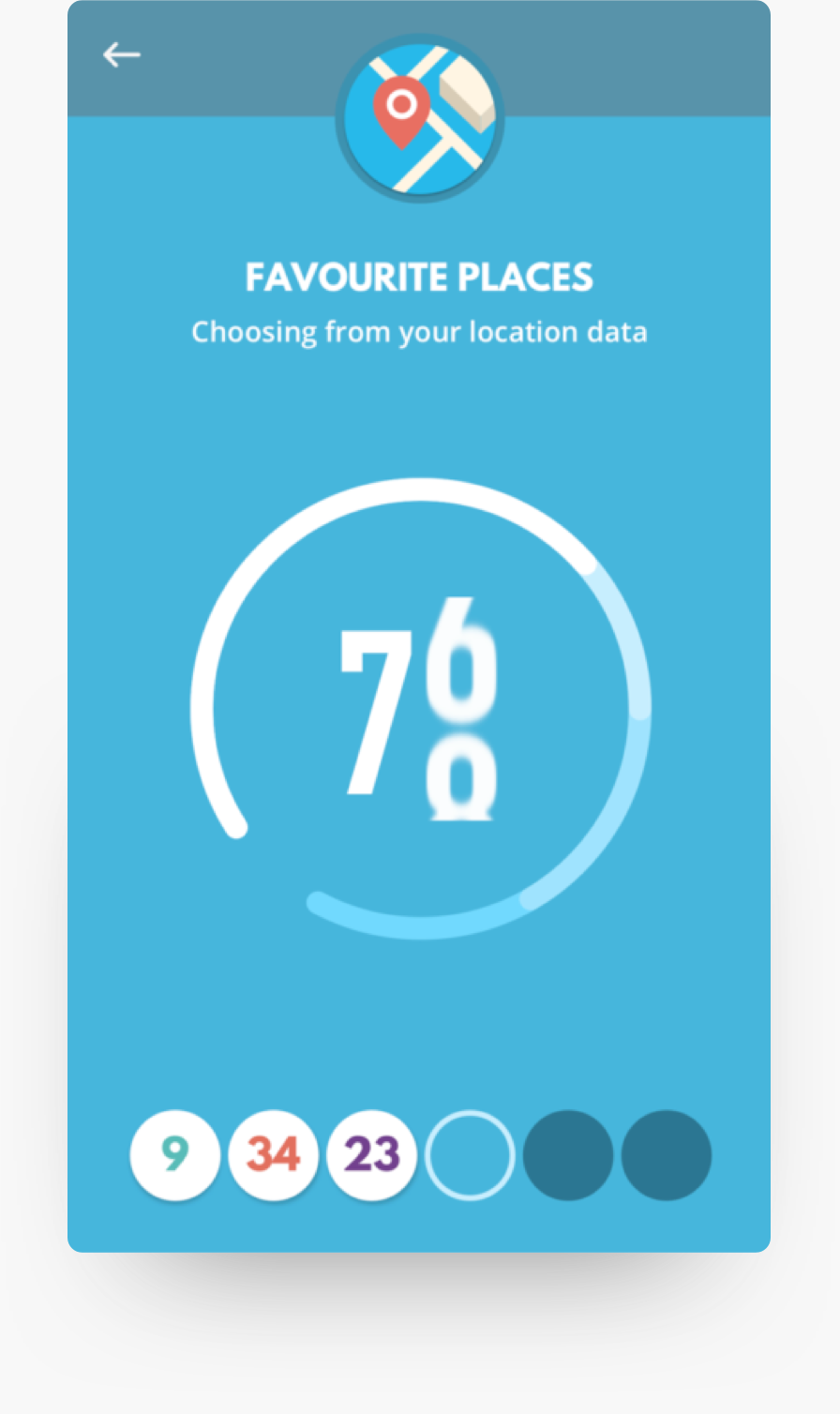
Play should be playful
Design is more than just the presentation of options. We should go a step further than simply arranging a user’s choices for them.
Playing a game is emotional, it’s fun and exciting – so we should look for ways to engage the user on an emotional level.
Any affordance that makes the experience more playful and delightful should be employed in the acquisition, engagement and retention of players.
Show wins
Winning seems more likely if we have seen or heard about recent winners.
The potential of the ‘big win’ is what drives play, so where possible show the player that people win playing this lottery, and that they are winning right this minute.
Showing the biggest win within specific timeframes (day, week, month), total wins, wins by game etc. will help bring the gameplay to life, showing that winning isn’t just possible, it’s actual – and, if you play, achievable.
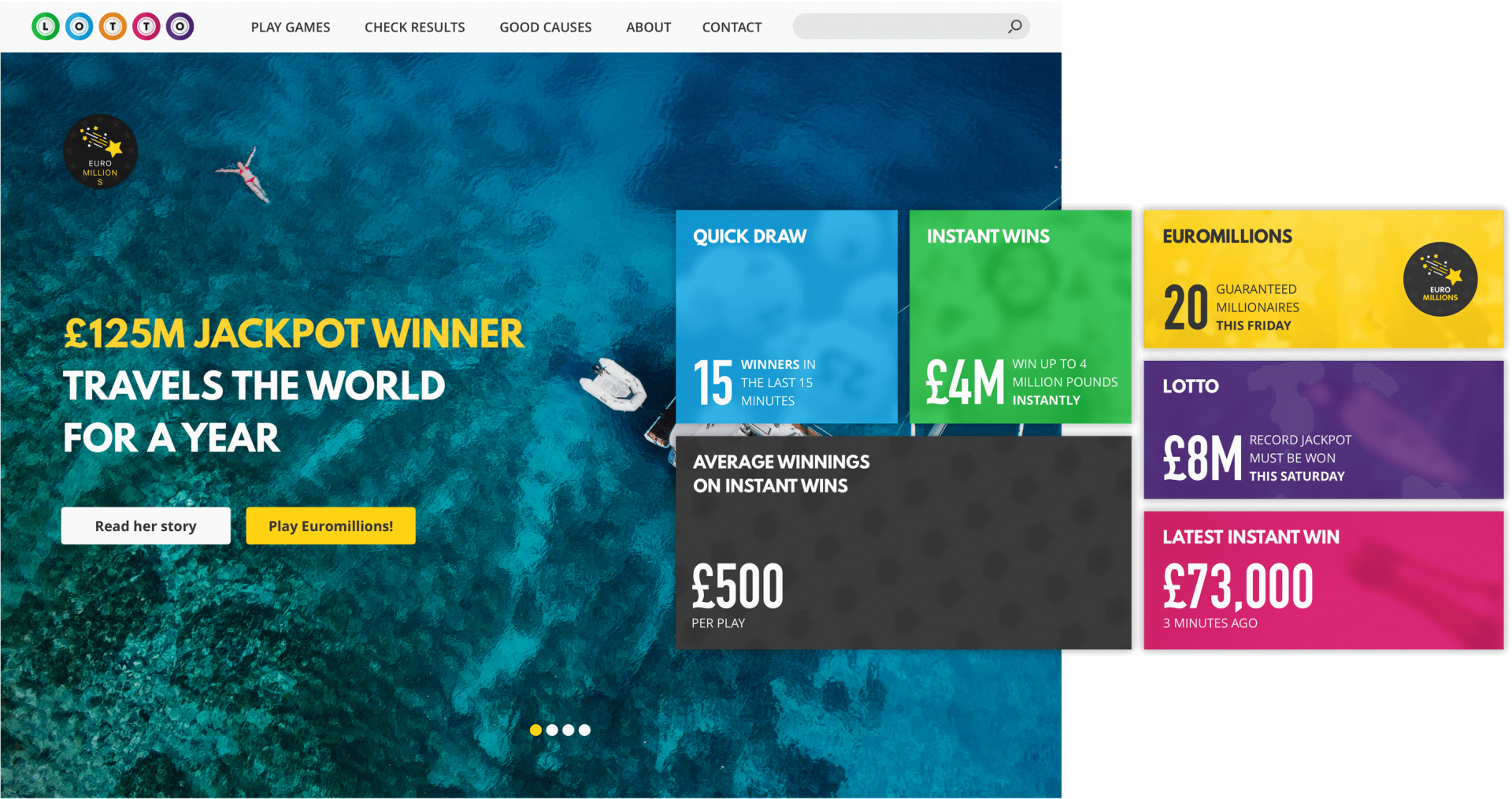
Engage with insight
People love stories and like attributing patterns, myths and meaning in everything they do.
So we can show interesting trends, such as rare picks, hot and cold numbers or common winning combinations, to satisfy our natural liking for links.
By displaying these in the form of statistical data, we could potentially pique their interest by tapping into their psyche and encourage repeat play.
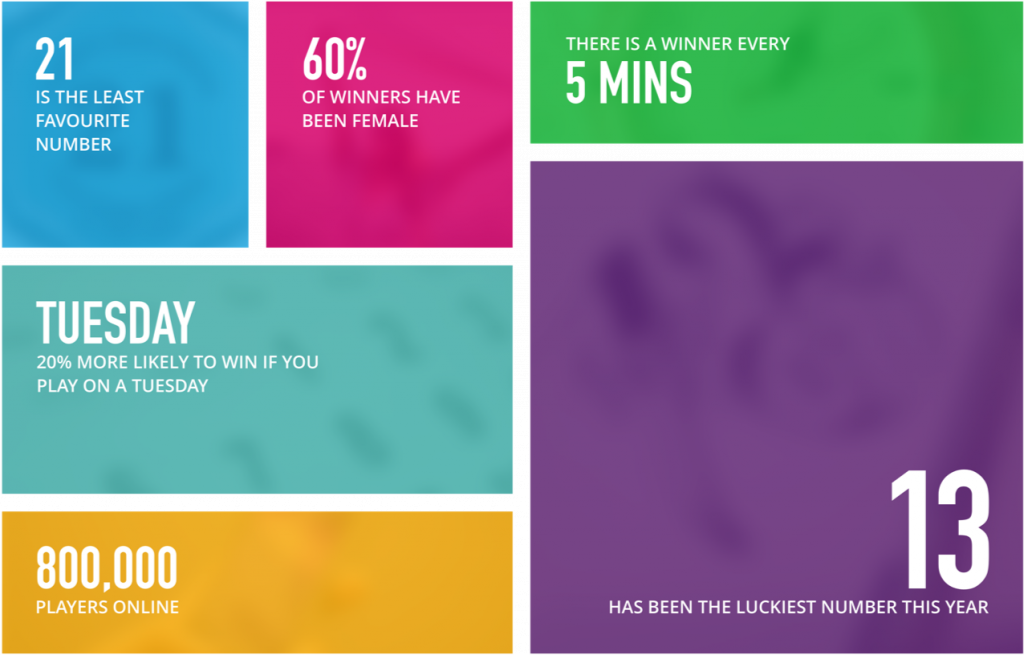
Make play personal
At its very essence, winning the lottery is all about picking the right numbers.
But as we’ve seen, numbers can mean things and fit into our lives in interesting ways. So when choosing numbers, some people use family birthdays, others use lucky numbers, some swear by a fail-safe “system” and some just like to make nice patterns when filling out the game slip.
But what really matters to you? Who’s your favourite team or your favourite player? What are your lucky locations and what numbers are ‘in your stars’?
You can gamify the number selection itself to build something meaningful and entertaining and to make the process of play itself, a moment of personal pleasure.
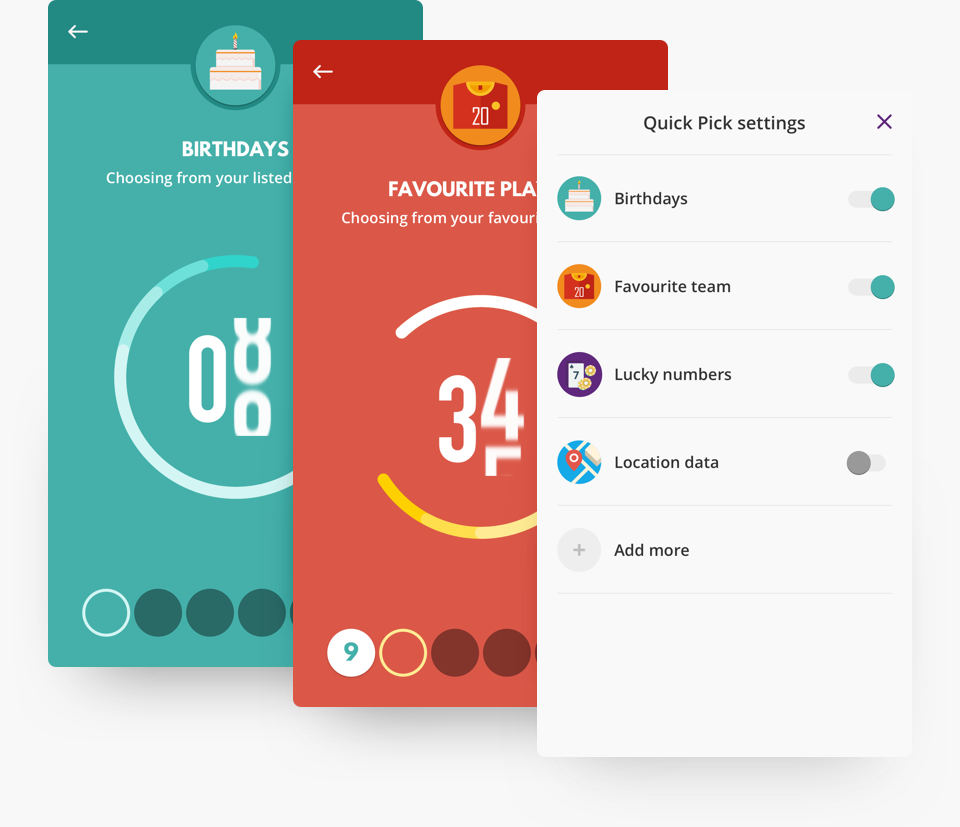
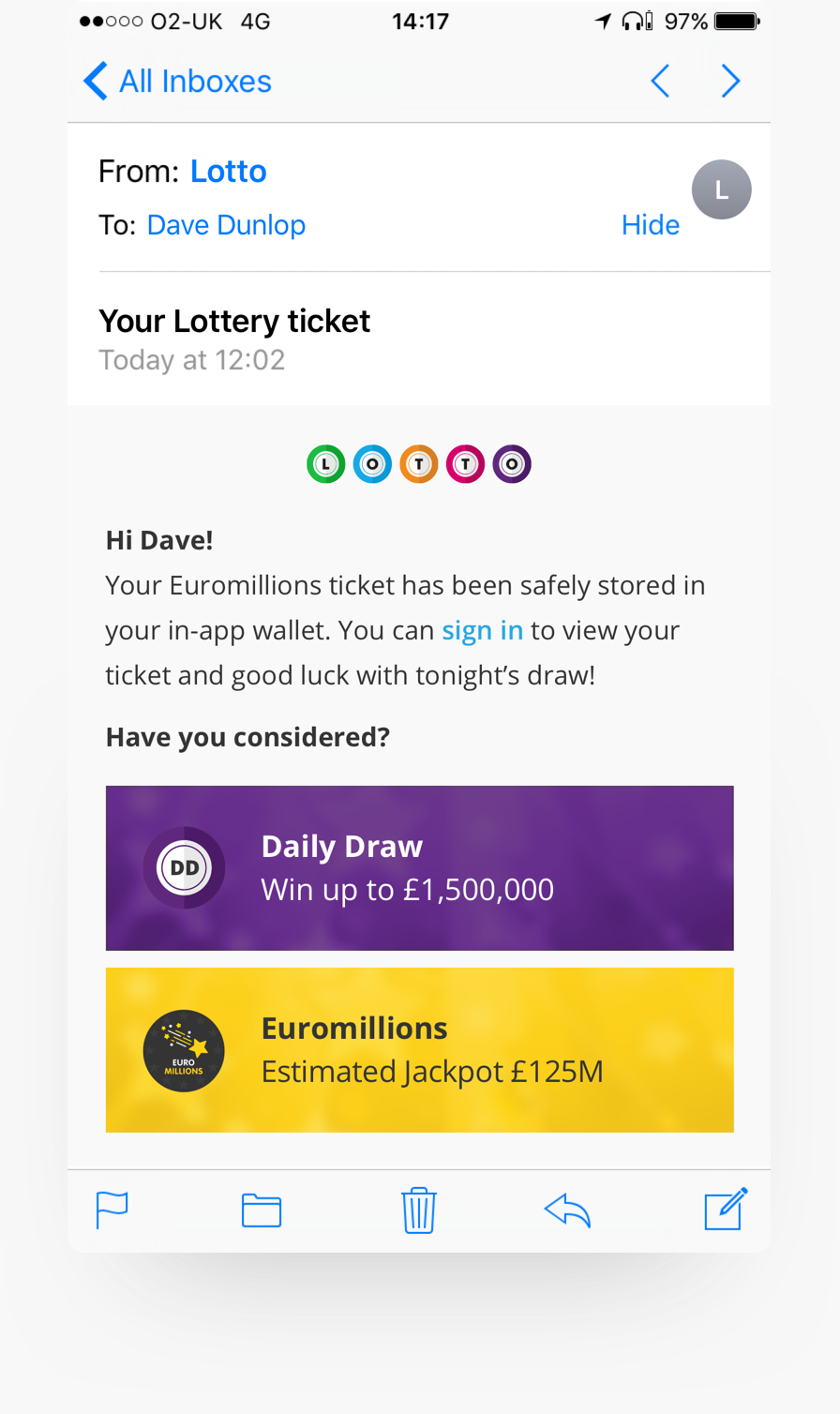
Cross-sell and up-sell
Confirmation pages, emailed ticket receipts and push notifications are chances to communicate with the customer at a moment when they are open to your message.
After all, if the player was interested enough to buy a ticket or download your app, it’s likely they will take a second look at something you have to offer – if you point them towards it.
This cross-sell and up-sell should form a key part of any lottery’s digital strategy.
However, it is currently overlooked by too many marketers, who having successfully sold one ticket, forget they can easily sell another to the same buyer.
Entertain to sustain
One high point of play is the moment before you find out if you are a winner.
There is huge opportunity here for lottery brands to connect with players between the moment they select numbers and the moment of the draw. This can build anticipation and create a sense of occasion around the draw itself.
A player will keep playing as they work toward their own goal with rewards to encourage them along that path. This is a fundamental principle of the human-centred ‘gamification’ model that we use in designing digital systems for our clients.
We need to keep the player engaged, so we encourage and reward players along the way, giving them little excitement ‘hits’ as they move towards their goal.
Whether it’s a visualisation of their future life, or an analysis of the numbers they’re playing, or even a simple countdown to when the results will be announced – anything that triggers a hint of anticipation and a little shot of excitement prior to the big event, is well worthwhile.
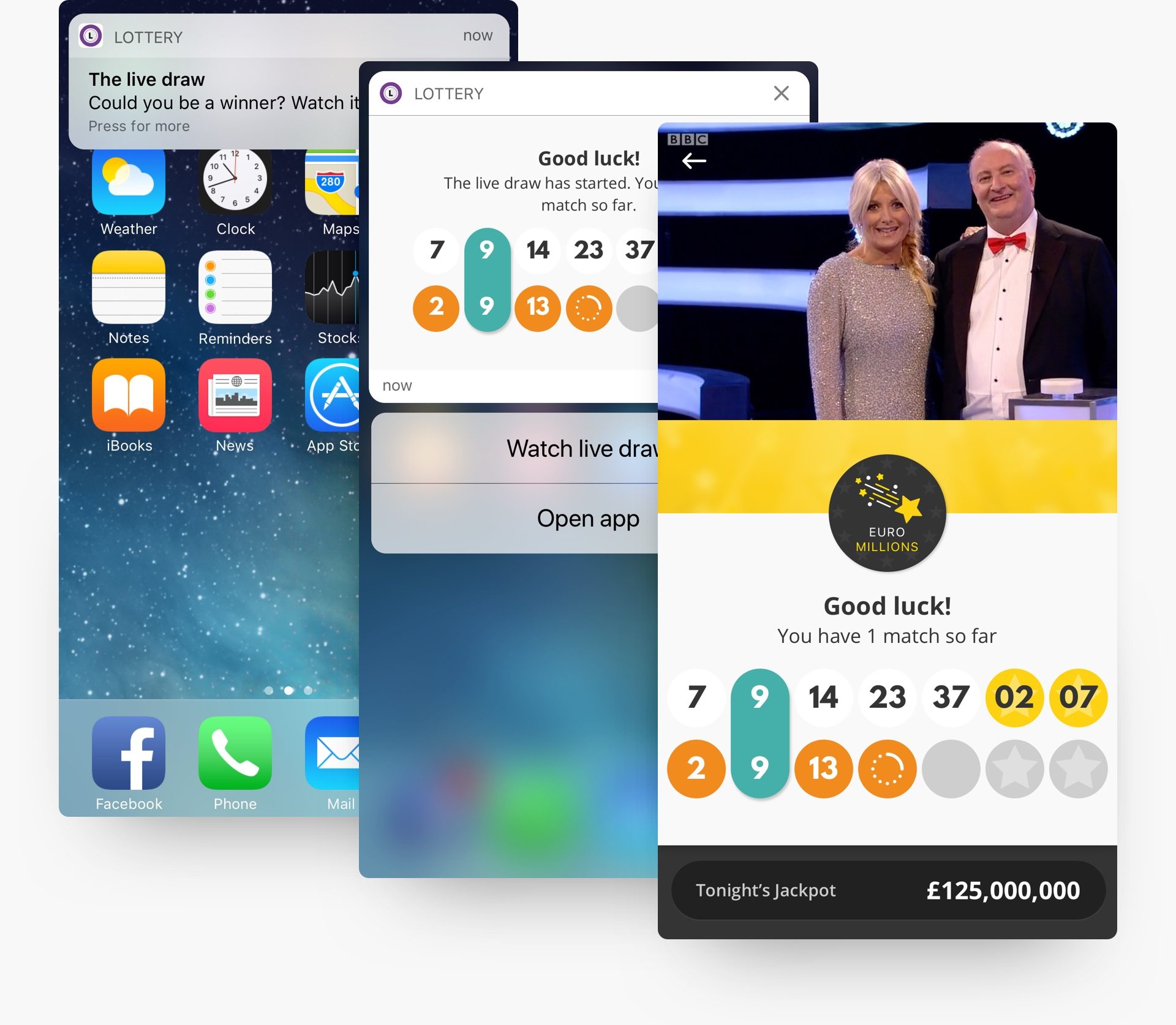
Make play matter
Millennials are willing to give and be involved with good causes. They believe in giving their time to brands that focus on a societal purpose, not just being in business to make a profit.
The power of organisation’s purpose is the perfect hook for younger players, as it creates a belief system that aligns with their own personal values – putting a little bit back into the system that has benefitted, or funded local community services.
Lotteries exist to raise money for good causes – they are designed to give back, so should appeal to a generation that sees this as a part of their DNA.
Digital technologies can make this connection even more powerful by showing, not just how much money is raised, but where that money is spent – using targeting techniques to show a player how organisations in their local area have benefitted from lottery funding.
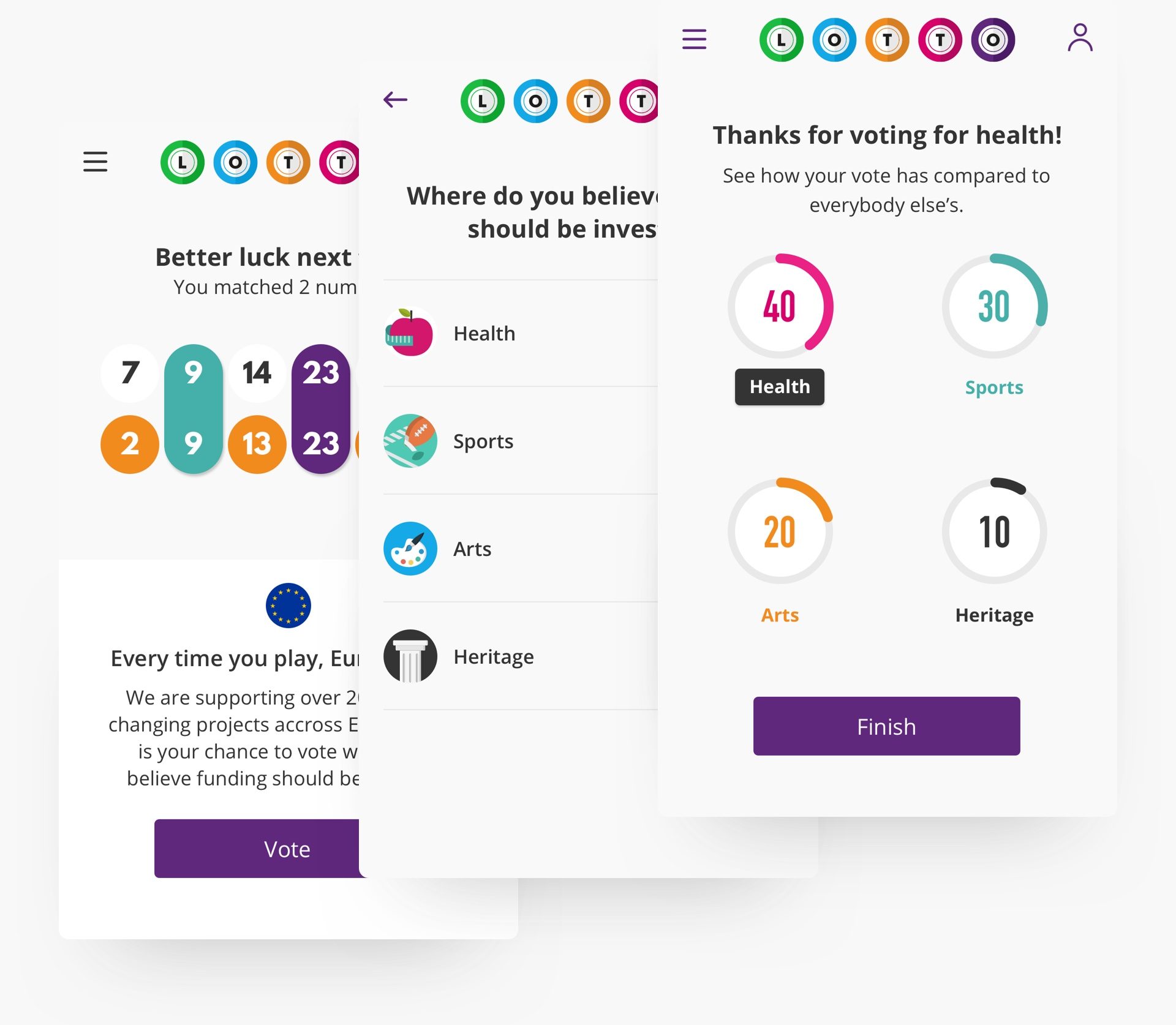
Connect physical and digital
Paper is simple – and simplicity works. There is something very obvious and understandable about getting a piece of paper, and clutching it to your chest as your ticket to riches.
It might feel a little dated, and you might lose it, but it’s low friction, its tactile and tangible – you can feel the potential reward in your hand.
But it’s not very digital – and it doesn’t help the lottery organiser stay in touch, show you the good your ticket has done, and tell you when you’ve won.
So lottery organisers need to find ways to to connect the physical retail and digital experiences – QR codes on paper tickets, in-store beacons, or electronic receipts – all provide a means to attract and engage the customer with a stronger, on-going digital relationship, and all should be considered as part of a comprehensive digital strategy.
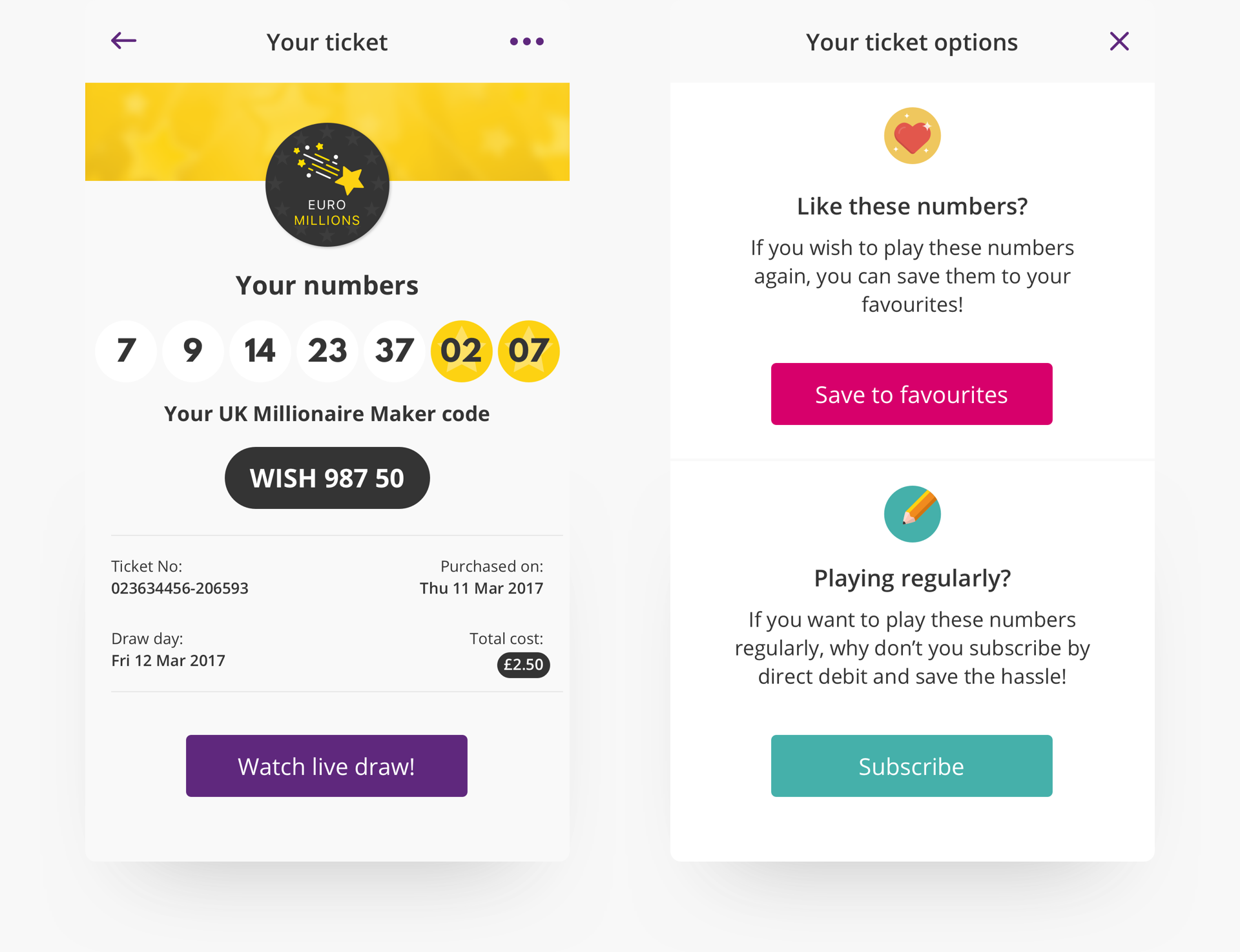
Entangle with ease
In digital, subscribing is simple and sticky – once a consumer is on-board they rarely get off or go elsewhere, spending a lot over time.
So, as well as encouraging one-off purchases, we should consider how to migrate players onto a subscription service, where they play regularly without having to undertake any further action.
Or have them download an app where we can put play just a thumb press away, with a persistent means to prompt people to take part.
Once they’re subscribed, we can keep them engaged and entertained while they can simply enjoy the fact that their participation is taken care of.
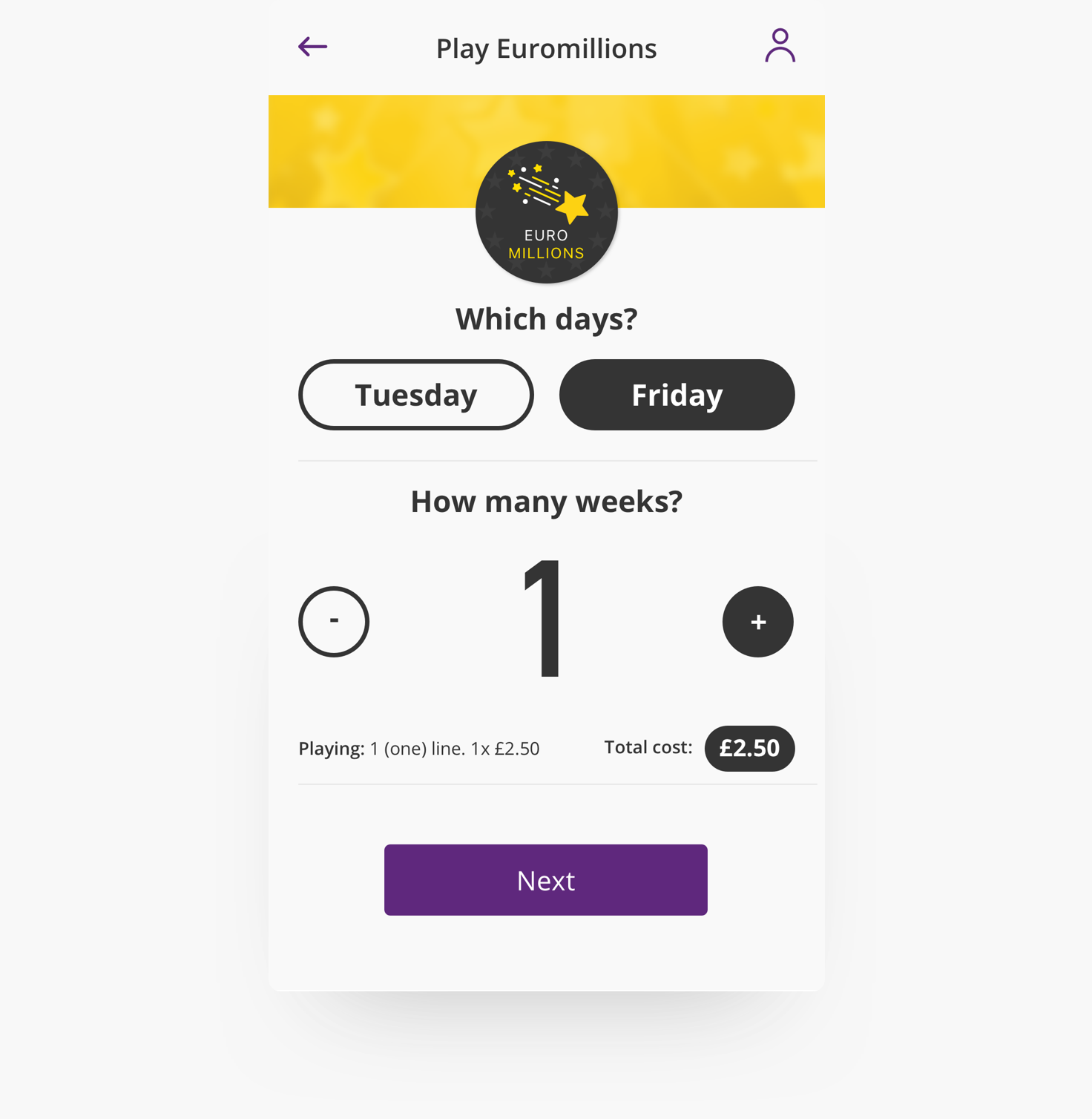
Looking for more inspiration?
Further inspire your digital lottery strategy by reading about the award-winning eGaming platform we redesigned for Loterie Romande. Awarded Gold at the 2019 DBA Design Effectiveness Awards, it was acknowledged for its design effectiveness in opening up significant new revenue opportunities, and in turn increasing funds available for social good.